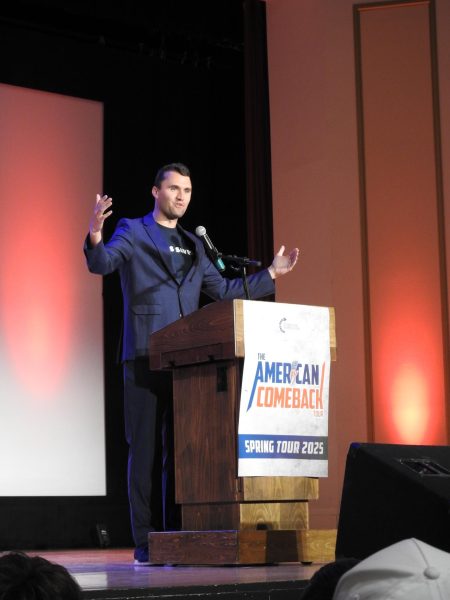Sophomores reflect on their mandatory sexual harassment talk
On Monday, February 12, the sophomore class attended their mandatory sexual harassment assembly during Uni Period, which many described as tense. Every grade level at Uni was required to attend their own meeting. According to the survey the gender studies class sent out about sexual harassment, the sophomore class reported the most problems with sexual harassment.
At the beginning of the meeting, the sophomores were split up by gender. According to sophomore Samaia Jones, the girls talked about what sexual harassment is, its occurrences in Uni, and how guys and girls can be both victims and perpetrators.
Sophomore Akash Pardeshi said that the guys defined sexual harassment and talked about forms of sexual harassment that they weren’t aware of, such as catcalling. One of the main topics they discussed was list making, which in the guys’ opinion, is one of their biggest problems and one of the least recognized.
When the two groups came together, each side talked about what they had discussed when they were split up, made attempts to express how they felt, and went through questions that they had for each other. Pardeshi said the girls brought up some of the topics the guys had discussed in their groups, such as “Why do guys make lists?” Silas Jones described the atmosphere of the co-ed discussion as very confrontational and unproductive.
During the discussion, a sophomore boy said that he doesn’t think sexual harassment is a problem at Uni because he hasn’t seen it. In response, Silas Jones said, “Just because you don’t see sexual harassment happening doesn’t mean it’s not a problem in our school. And while yes, we may be a smaller school (…), it still is a problem here.”
When asked about the choice to split up the grade by gender, Nicole Southey argued that it was a good idea because there are certain things that some people would not feel comfortable saying in co-ed groups. However, she stated that she does wish that the groups had been smaller and more intimate because it would have likely prompted more people to talk about how they feel.
Smita Nair argued in favor of same-gender groups, saying that, in co-ed groups, “there’s a greater likelihood that you would be in a group with somebody who has sexually harassed you. Also, I don’t know if I would feel comfortable putting my opinions out there in a group with harassers probably in it.”
However, many guys thought that co-ed groups would have been a better idea, bringing up the point that although women are much more likely to be victims of sexual harassment, it is not restricted to men-on-women. Anyone can be a victim or a perpetrator of sexual harassment regardless of their gender.
Although the sophomores’ sexual harassment discussion was tense at times, Southey agreed that it was beneficial in that it helped prompt important conversations between students afterwards and increase awareness about sexual harassment. She also believes that students have become more conscious of sexual harassment and displayed some new understanding about the topic. Pardeshi agreed that the sexual harassment talk was valuable, saying “It [the talk] brought to light some issues we didn’t notice before.”
